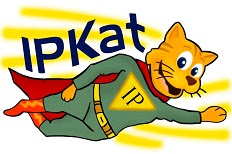
Soft drinks and the right to freedom of expression
The right to freedom of information of consumers cannot be unduly limited, the Colombian Constitutional Court Says.
Through sentence T-543/17, the Colombian Constitutional Court held that the consumer’s right to freedom of information cannot be limited, and that any decision that could have a negative impact on it, only can be adopted after a due process, ensuring the protection of the fundamental rights of all actors involved.
The fact given rise to this decision is the request of the Colombian soft drink company Postobón to the Superintendence of Industry and Commerce (SIC)for the prohibition of displaying on TV of the education campaign on the health problems caused by the consumption of sugar-sweetened drinks that was developed by the Colombian Association of Consumer Education.
 As a result, the Superintendence ordered to suspend the transmission of the campaign on TV while the validity of the information on it was checked. The decision was made on the argument that there was a risk that the advertisements might mislead the consumers since the information provided did not contain the scientific sources supporting them and, therefore, did not meet all the requirements of ‘clarity, truthfulness, adequacy, opportunity, accuracy, comprehensibility, precision, and competence.’
As a result, the Superintendence ordered to suspend the transmission of the campaign on TV while the validity of the information on it was checked. The decision was made on the argument that there was a risk that the advertisements might mislead the consumers since the information provided did not contain the scientific sources supporting them and, therefore, did not meet all the requirements of ‘clarity, truthfulness, adequacy, opportunity, accuracy, comprehensibility, precision, and competence.’
Arguing a violation of the rights of freedom of expression and due process, the Colombian Association of Consumer Education argued against the decision. Nonetheless, this was confirmed by the Bogotá Circuit Court No. 4 on the first instance, and by the Civil Chamber of the Tribunal Court of Bogotá on the second instance. In sum, these Courts affirmed that the acts of the Superintendence were directed towards consumer protection, given that the Association did not present the scientific evidence supporting the content of the advertisements claiming threats to health by sugar consumption. Furthermore, they found no violation of fundamental rights.
A group of consumers also brought proceeding against the decision of the Superintendence. This group of citizens claimed their right to receive information about the potential damage to health caused by the consumption of sugar-sweetened drinks. This claim was denied in the first instance by the Family Division of the Superior Tribunal of Bogotá, but accepted by the Civil Cassation Court of the Supreme Court of Justice.
When reviewing the case, the Constitutional Court concluded that the decision adopted by the Superintendence of Industry and Commerce contravened the fundamental rights to freedom of expression, freedom of information, and due process. Similarly, that the decision constituted a measure of censorship because it established a prior check on information. For those reasons, it ordered to the Superintendence the withdrawal of the administrative act prohibiting the public display about consumption of sugar-sweetened drinks.
The case can be read here (in Spanish)
Post written by Florelia Vallejo Trujillo
Assistant Professor, Universidad del Tolima, Colombia
PhD Candidate University of Nottingham, UK
Through sentence T-543/17, the Colombian Constitutional Court held that the consumer’s right to freedom of information cannot be limited, and that any decision that could have a negative impact on it, only can be adopted after a due process, ensuring the protection of the fundamental rights of all actors involved.
The fact given rise to this decision is the request of the Colombian soft drink company Postobón to the Superintendence of Industry and Commerce (SIC)for the prohibition of displaying on TV of the education campaign on the health problems caused by the consumption of sugar-sweetened drinks that was developed by the Colombian Association of Consumer Education.
 As a result, the Superintendence ordered to suspend the transmission of the campaign on TV while the validity of the information on it was checked. The decision was made on the argument that there was a risk that the advertisements might mislead the consumers since the information provided did not contain the scientific sources supporting them and, therefore, did not meet all the requirements of ‘clarity, truthfulness, adequacy, opportunity, accuracy, comprehensibility, precision, and competence.’
As a result, the Superintendence ordered to suspend the transmission of the campaign on TV while the validity of the information on it was checked. The decision was made on the argument that there was a risk that the advertisements might mislead the consumers since the information provided did not contain the scientific sources supporting them and, therefore, did not meet all the requirements of ‘clarity, truthfulness, adequacy, opportunity, accuracy, comprehensibility, precision, and competence.’Arguing a violation of the rights of freedom of expression and due process, the Colombian Association of Consumer Education argued against the decision. Nonetheless, this was confirmed by the Bogotá Circuit Court No. 4 on the first instance, and by the Civil Chamber of the Tribunal Court of Bogotá on the second instance. In sum, these Courts affirmed that the acts of the Superintendence were directed towards consumer protection, given that the Association did not present the scientific evidence supporting the content of the advertisements claiming threats to health by sugar consumption. Furthermore, they found no violation of fundamental rights.
A group of consumers also brought proceeding against the decision of the Superintendence. This group of citizens claimed their right to receive information about the potential damage to health caused by the consumption of sugar-sweetened drinks. This claim was denied in the first instance by the Family Division of the Superior Tribunal of Bogotá, but accepted by the Civil Cassation Court of the Supreme Court of Justice.
When reviewing the case, the Constitutional Court concluded that the decision adopted by the Superintendence of Industry and Commerce contravened the fundamental rights to freedom of expression, freedom of information, and due process. Similarly, that the decision constituted a measure of censorship because it established a prior check on information. For those reasons, it ordered to the Superintendence the withdrawal of the administrative act prohibiting the public display about consumption of sugar-sweetened drinks.
The case can be read here (in Spanish)
Post written by Florelia Vallejo Trujillo
Assistant Professor, Universidad del Tolima, Colombia
PhD Candidate University of Nottingham, UK















